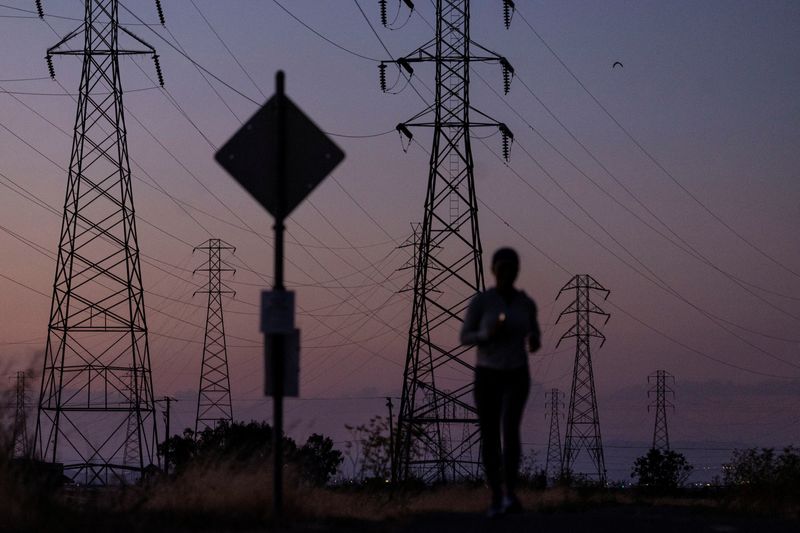(Reuters) - U.S. power consumption will rise to a record high in 2022 due to rising economic activity and hotter summer weather, the U.S. Energy Information Administration (EIA) said in its Short-Term Energy Outlook (STEO) on Wednesday.
EIA projected power demand will climb to 4,034 billion kilowatt-hours (kWh) in 2022, from 3,930 billion kWh in 2021, then slide to 4,001 billion kWh in 2023 as temperatures moderate.
That compares with an eight-year low of 3,856 billion kWh in 2020, when the coronavirus pandemic depressed demand, and an all-time high of 4,003 billion kWh in 2018.
EIA projected 2022 power sales would rise to 1,507 billion kWh for residential consumers, 1,372 billion kWh for commercial customers as more people return to work in offices and 1,013 billion kWh for the industrial sector.
That compares with all-time highs of 1,477 billion kWh in 2021 for residential consumers, 1,382 billion kWh in 2018 for commercial customers and 1,064 billion kWh in 2000 for industrial customers.
EIA said natural gas' share of power generation would rise from 37% in 2021 to 38% in 2022 before sliding to 36% in 2023. Coal's share will drop from 23% in 2021 to 20% in 2022 and 19% in 2023 as renewable output rises.
The percentage of renewable generation will rise from 20% in 2021 to 22% in 2022 and 24% in 2023. Nuclear power's share will slide to 19% in 2022, from 20% in 2021, before rising back to 20% in 2023.

EIA projected 2022 gas sales would rise to 13.62 billion cubic feet per day (bcfd) for residential consumers, 9.69 bcfd for commercial customers, 23.15 bcfd for industrial customers and 32.64 bcfd for power generation.
That compares with all-time highs of 14.32 bcfd in 1996 for residential consumers, 9.63 bcfd in 2019 for commercial customers, 23.80 bcfd in 1973 for industrial customers and 31.75 bcfd in 2020 for power generation.